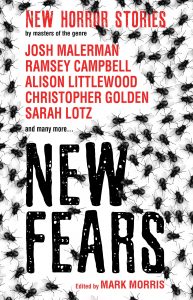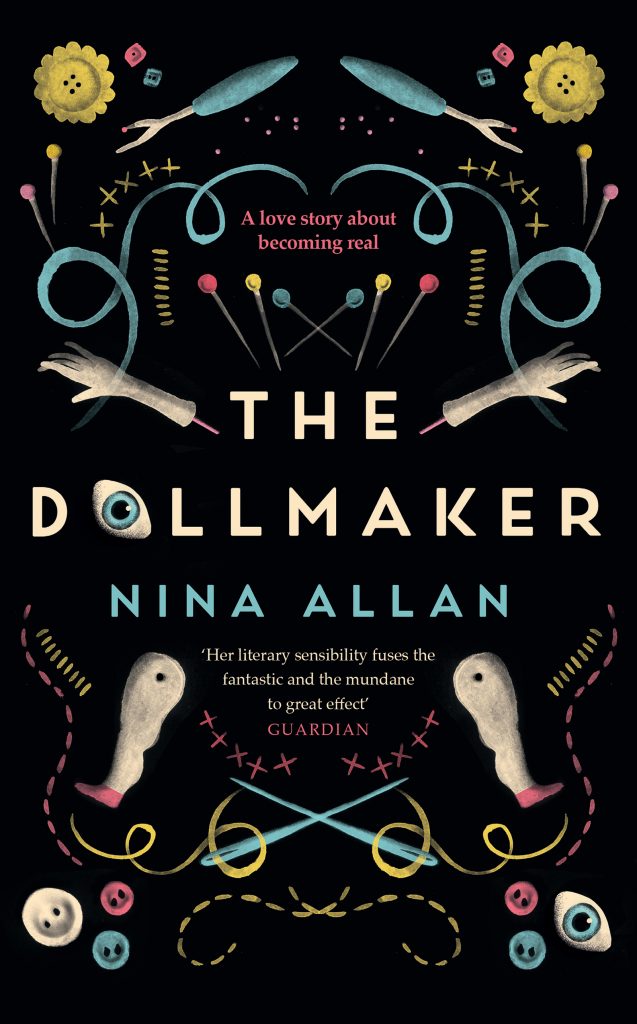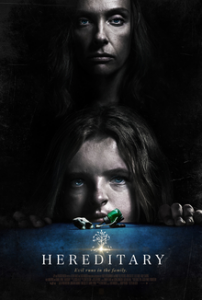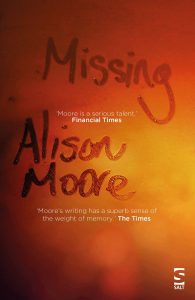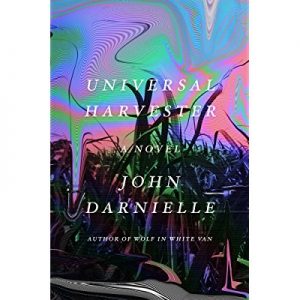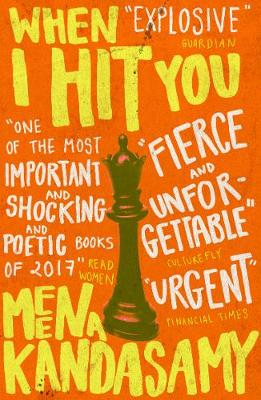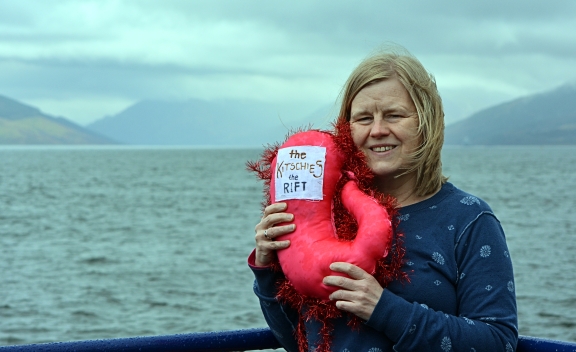With just a few hours remaining before the winner of this year’s Arthur C. Clarke Award is announced, here are my thoughts on the shortlist in a guest post I wrote for the Sharke blog at the ARU CSFF website.
My initial reaction to this year’s Clarke Award shortlist was that it was one of the strongest in recent memory. After having read all six shortlisted titles that is an assertion I would stick by, even as my reasons for believing this have shifted, and my hunches as to the identity of the eventual winner have become much less certain.
I still find last year’s shortlist disappointing. In terms of the kinds of science fiction on offer it feels less diverse: dissimilar though the novels are in terms of subject matter and storyline, Occupy Me, After Atlas, A Closed and Common Orbit and Ninefox Gambit all occupy a similar territory, and one that is largely defined by its adherence to genre tropes and conventions. Although widely enjoyed and praised, the eventual winner The Underground Railroad still reads bland to me, both in terms of its literary styling and its use of science fiction. One year on, it seems clear that the most radical work on that list in terms of both literary ambition and engagement with the genre is Lavie Tidhar’s Central Station, although it could be argued that the form it takes – some will call it a fix-up, others will style it a story cycle – leaves it lacking the punch of a unitary novel.
The strength of this year’s shortlist lies in its showcasing of different approaches to science fiction, an aspect that only becomes clearer as you become better acquainted with the novels themselves. Whether intentionally or not, this year’s jury have managed to present a genuine snapshot of science fiction as it is being written and read in 2018, an achievement that would in itself be enough to merit applause. That the shortlist includes books of such quality as to make it difficult to call an obvious winner is the icing on the cake. As I write this in the run-up to the final announcement, I have absolutely no idea who is going to win.
The way it appears to me, the Clarke judges have presented us with six works that each occupy a distinct and readily identifiable category of science fiction, each of which is worthy of study and further analysis. Jennie Melamed’s Gather the Daughters represents a category that for want of a better title I will name the debut crossover. Recent years have shown a distinct upsurge in this category, which consists of novels published by mainstream imprints and aimed very much at a literary market, whose premise nonetheless makes use of solidly science fictional materials. These novels appear from nowhere and we often have no idea at the time of publication whether their (often young and hitherto unknown) authors will continue to interest themselves in speculative fiction as their careers progress. Recent examples in this category might also include Karen Thompson Walker’s The Age of Miracles (2012), The Godless Boys by Naomi Wood (2011), The Dog Stars by Peter Heller (2012) and Emmi Itäranta’s Memory of Water (2014). Novels in the crossover debut category will often display a poetic literary sensibility and focus on character that makes them immediately accessible across genre divides, yet it could also be said that in terms of their use of science fiction they tend to be conservative, offering variations on a set of usually dystopian tropes that in science fictional terms at least have long ceased to be new. The most significant thing about this category is its popularity, among both readers and writers, and what such popularity tells us about how science fictional ideas are increasingly coming to be accepted as suitable subjects for mainstream literature.
While being a perfectly competent novel in many respects, Gather the Daughters did not win me over, mainly because – as outlined in my earlier review – I found the premise itself to be so unbelievable. I did enjoy Melamed’s character work, and I hope she chooses to dig deeper into speculative fiction in future novels. I am somewhat at a loss as to why the Clarke judges decided to shortlist this particular book however, and as a representative of the debut crossover category, I would have preferred to see Naomi Booth’s Sealed, a shorter but much more affecting essay in catastrophe, with a genuine sense of urgency as well as great sense of place.
C. Robert Cargill’s Sea of Rust could best be described as IMAX SF. Novels that fit this designation are those that can most easily trace their ancestry back to American ‘Golden Age’ traditions and that occupy most of the shelf space in the science fiction section of your local bookshop. Other Clarke Award winners and shortlistees that fall into this group are Greg Bear’s Hull Zero Three (2011), Alastair Reynolds’s Revelation Space (2001) Richard Morgan’s Black Man (2007) Ann Leckie’s Ancillary Justice (2013) and Adrian Tchaikovsky’s Children of Time (2016). A propulsive, plot-heavy approach is usually central to these novels, which abide solidly by genre conventions and are happy within their confines. IMAX SF is unashamedly uninflected, not seeking to subvert genre conventions so much as joyfully endorse them. Language here is utilised as a tool for driving the story rather than an end in itself. These are the books that have done most – for good or for ill – to shape the landscape of popular media SF and be shaped by it in their turn.
As the largest sub-segment of science fiction, it is no surprise that IMAX SF shows the widest variation in quality, and I think it’s a shame that the Clarke jury selected Sea of Rust as their exemplar. As an adventure story pure and simple, it’s readable and entertaining, the kind of novel you might devour whole on a rainy Sunday afternoon before passing it on to your younger brother as an extra birthday present. As a serious contribution to the field, it has no significance whatsoever. Even from the first paragraphs I found I couldn’t help chuckling to myself over the implausibility of the point of view character, Brittle, as the narrative voice of an artificial intelligence. It’s so, so human – the human voice of a Hollywood screenwriter overdosing on exposition, to be precise. And as a citizen of the robot universe, just why would Brittle bother robo-splaining all this shit to me in any case? Come on, we can do better than this. If the jury wanted IMAX SF to be represented on the Clarke Award shortlist, why couldn’t they have gone for The Stars Are Legion, or Raven Stratagem, or New York 2130? Of all the novels on this year’s shortlist, Sea of Rust is the biggest mystery, and not in a good way. And to think the place could have gone to Gnomon instead…
Jaroslav Kalfar’s Spaceman of Bohemia falls into that slippery category that I am going to term ‘of speculative interest’. Novels in this category are often referred to in genre circles as ‘literary SF’, a term I have come to distrust and dislike as being too catch-all and therefore inaccurate. What they have in common is that they are targeted firmly at the literary readership, contain little or no mention of science fiction in their marketing, and generally make use of speculative materials in a symbolic capacity rather than being a more hands-on exploration of science fictional ideas. Recent examples might include Michel Faber’s The Book of Strange New Things (2014), Richard Powers’s Generosity (2010), Kate Atkinson’s Life After Life (2013) and Jan Morris’s Hav (2006). Their writers usually originate from outside the science fiction conversation, but may – like Kazuo Ishiguro and David Mitchell – end up joining it as their knowledge of and interest in science fiction becomes more central to their work.
Like Gary Wolfe in his review for the Sharke roundtable, I would argue that Spaceman of Bohemia is a strongly written, compelling novel that makes use of genre materials more as a binding agent for its true narrative and to little effect. In Spaceman’s witty and ironical protagonist Jakub we encounter a point of view – the son of a State-sponsored torturer – that is rarely encountered in post-Soviet literature or indeed anywhere. The chief problem with this novel is that the realworld segments – Jakub’s memories of his childhood and his grandparents, the difficulty of growing up in a world where the systems that supported him are suddenly withdrawn – are so well rendered, so compelling that the science fictional elements – Jakub’s mission to the Chopra cloud and his relationship with the spider-like alien – feel thin by comparison. We believe totally in Jakub, in his obsessing over his broken relationship with his girlfriend Lenka, in the home he is forced to leave in the aftermath of the collapse of the Berlin Wall. We do not truly believe in or care about his space mission, and often find ourselves wondering if the book might have been better without it. I’m happy to see this novel on the Clarke Award shortlist because it reflects an open and flexible approach on the part of the jury, and of course because it is a good novel, but I don’t think it will win.
Omar El Akkad’s American War belongs to a category that is, if anything, even more slippery than ‘of speculative interest’ – indeed, some may claim it as an offshoot of that category and it’s so slippery I haven’t managed to come up with a name for it yet other than contemporary parable. American War is a novel that makes strong and overt use of speculative materials, yet is not truly interested in questions around the materials themselves. Other notable examples of science fiction as parable would include Colson Whitehead’s The Underground Railroad (2016), Mohsin Hamid’s Exit West (2017) and James Smythe’s The Testimony (2011), novels in which a science fictional element functions primarily as a gimmick to enable a particular premise. American War is more overtly science fictional than any of these, yet I found it disappointing for similar reasons. In his eagerness to showcase his thesis, El Akkad is overly wedded to his parable template, not fluid enough in his approach to genre to allow his characters proper freedom of movement within its confines. In some ways, American War reads more like an essay than a novel. Though well written, it lacks something in personality, and could date very quickly. As regards the Clarke Award, American War does provide plenty of material for discussion and I still think it’s a contender.
The category into which Anne Charnock’s Dreams Before the Start of Time most naturally fits is arguably the most interesting, being as it is the intellectual engine room of science fiction, the category in which new ideas and new approaches most frequently spark to life. I’m going to call it the New New Wave, in honour of the British tradition of science fiction not as a pulp commodity but as a literature of ideas, as pioneered by Mary Shelley and H. G. Wells. Recent and notable New New Wave novels would include Dave Hutchinson’s ‘Europe’ sequence (2015-2018), Adam Roberts’s The Thing Itself (2015), Tricia Sullivan’s Maul (2003), Matthew de Abaitua’s If Then (2015), Nicola Griffiths’s Ammonite (1993), Paul McAuley’s Fairyland (1995) and Christopher Priest’s The Adjacent (2013). I would stress that there is no requirement on New New Wave authors to be British, and one could point equally to Nick Wood’s Azanian Bridges (2016), Nnedi Okorafor’s Lagoon (2013), Lavie Tidhar’s Central Station (2016) Jennifer Marie Brissett’s Elysium (2014) or anything by Ted Chiang as valuable exemplars of this strand of SF. New New Wave books are characterised above all by their interrogative nature, their knowledge of the speculative genres and willingness to be engaged with them – in a word, they are inside jobs. Another adjective that might be applied is progressive, and many New New Wave writers adopt radical approaches in terms of form, language, subject matter, social and political commentary and sometimes all four. I have always been of the opinion that this is the kind of science fiction that the Clarke Award should be seeking out and promoting, and I was delighted to see Dreams Before the Start of Time turn up on the shortlist for this reason.
With her three fine novels to date, Anne Charnock has embedded herself firmly at the heart of the New New Wave tradition. Using clear, declarative language and a character-based approach, Charnock engages directly and with a palpable sense of curiosity with those ideas that form the building blocks of contemporary SF: human reproduction, gender and sexuality, artificial intelligence (anyone curious about how an AI might actually think and speak should give Sea of Rust a miss and skip straight to Charnock’s PKD-Award-shortlisted A Calculated Life), genetics, robotic technology and climate change. Her novels are understated but deeply felt, and she is not afraid to ask the reader to step into the shoes of her characters: if this happened, what would you do? Rather in the manner of James Bradley’s Clade, Dreams Before the Start of Time follows the stories of one family over a number of decades, unravelling the relationships that bind them even as it asks searching questions about the possible futures we might be facing. As a novel it is astute, sensitive and thought provoking and one senses that Charnock’s best work is still very much in the making.
My final category is the modern classic. These are novels that stand a realistic chance of still being read generations from now, written from the heart of SF and yet not slaves to it, identifying a major trend or theme and exemplifying it with literary flair. A modern classic is not necessarily immediately identifiable. Some books – especially complex books – take time to be recognised and it may sometimes be years before we see them for the masterpieces they are. Modern classics associated with the Clarke – note that not all of them won it – would have to include China Miéville’s Perdido Street Station (2000), Jeff Noon’s Vurt (1993), Michael Swanwick’s The Iron Dragon’s Daughter (1993),Sarah Hall’s The Carhullan Army (2007), David Mitchell’s Cloud Atlas (2004), Chip Delany’s Stars in my Pocket Like Grains of Sand (1986), Geoff Ryman’s The Child Garden (1989), Ian MacDonald’s The Dervish House (2010), Margaret Atwood’s The Handmaid’s Tale (1986), M. John Harrison’s Light (2002), and Emily St John Mandel’s Station Eleven (2014). Perhaps the most interesting thing about this category is that a modern classic may originate from any of the other five categories.
Of all the novels on this year’s Clarke Award shortlist, Jeff VanderMeer’s Borne seems the most likely to earn its place as a modern classic. There is a beauty and simplicity in its manner of storytelling that makes it seem as if the book has always existed. That it will be read and enjoyed for many years to come is not in question. Undaunted by orthodoxies and unbothered by rules, VanderMeer’s approach to science fiction is as wayward as it is inventive, the mark of the true original. Yet VanderMeer is also telling us something important about our world, about the dangers and repercussions of human impact on the natural environment, about technology’s unpredictable impact on humans. As well as being superbly achieved and notable as literature, VanderMeer’s work is also important as science fiction. In its immediacy, its accessibility and its aesthetic beauty, Borne acts as a kind of summary statement of the author’s work to date and it is perhaps fitting that this is the novel that has finally won Jeff VanderMeer a place on the Clarke Award shortlist.
Better late than never, I say.
This is the first time for some years that I am not able to be present at the Clarke Award ceremony. I’ll be following the announcement online though, rest assured. I know which book I think should win, I know which book I want to win. I await the outcome of the judges’ deliberations with eagerness and great curiosity.
